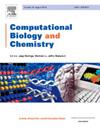探索米莫霉素作为Janus激酶2抑制剂:计算和实验相结合的研究。
IF 2.6
4区 生物学
Q2 BIOLOGY
引用次数: 0
摘要
Janus激酶(JAKs)是细胞内酪氨酸激酶家族,在信号转导途径中起重要作用。JAK2与白血病的发病机制有关,这使其成为旨在降低白血病风险的研究的一个有希望的靶点。本研究通过体外和计算机方法检测了米莫霉素作为JAK2抑制剂的潜力。我们用激酶法测定了米莫霉素对JAK2抑制作用的IC50值,发现其为22.52 ± 0.87 nM。此外,我们利用分子对接、分子动力学模拟和自由能计算在原子水平上研究了抑制机制。我们的研究结果表明,米莫霉素在几个关键区域与JAK2相互作用:铰链保守区域(M929, Y931, L932和G935), G环(L855和V863)和催化环(L983)。为了提高米莫霉素对JAK2的结合亲和力,我们设计了在萘醌核心结构上取代丙腈和环戊烷的衍生物。值得注意的是,这些新设计的类似物显示出针对JAK2的有希望的结合模式。这些发现可能有助于合理开发新的JAK2抑制剂,在白血病和相关疾病的治疗中具有潜在的应用。本文章由计算机程序翻译,如有差异,请以英文原文为准。
Exploring mimosamycin as a Janus kinase 2 inhibitor: A combined computational and experimental investigation
Janus kinases (JAKs) are a family of intracellular tyrosine kinases that play a crucial role in signal transduction pathways. JAK2 has been implicated in the pathogenesis of leukemia, making it a promising target for research aimed at reducing the risk of this disease. This study examined the potential of mimosamycin as a JAK2 inhibitor using both in vitro and in silico approaches. We performed a kinase assay to measure the IC50 of mimosamycin for JAK2 inhibition, which was found to be 22.52 ± 0.87 nM. Additionally, we utilized molecular docking, molecular dynamics simulations, and free energy calculations to investigate the inhibitory mechanism at the atomic level. Our findings revealed that mimosamycin interacts with JAK2 at several key regions: the hinge-conserved region (M929, Y931, L932, and G935), the G loop (L855 and V863), and the catalytic loop (L983). To enhance the binding affinity of mimosamycin toward JAK2, we designed derivatives with propanenitrile and cyclopentane substitutions on the naphthoquinone core structure. Notably, these newly designed analogs exhibited promising binding patterns against JAK2. These insights could aid in the rational development of novel JAK2 inhibitors, with potential applications in the treatment of leukemia and related diseases.
求助全文
通过发布文献求助,成功后即可免费获取论文全文。
去求助
来源期刊

Computational Biology and Chemistry
生物-计算机:跨学科应用
CiteScore
6.10
自引率
3.20%
发文量
142
审稿时长
24 days
期刊介绍:
Computational Biology and Chemistry publishes original research papers and review articles in all areas of computational life sciences. High quality research contributions with a major computational component in the areas of nucleic acid and protein sequence research, molecular evolution, molecular genetics (functional genomics and proteomics), theory and practice of either biology-specific or chemical-biology-specific modeling, and structural biology of nucleic acids and proteins are particularly welcome. Exceptionally high quality research work in bioinformatics, systems biology, ecology, computational pharmacology, metabolism, biomedical engineering, epidemiology, and statistical genetics will also be considered.
Given their inherent uncertainty, protein modeling and molecular docking studies should be thoroughly validated. In the absence of experimental results for validation, the use of molecular dynamics simulations along with detailed free energy calculations, for example, should be used as complementary techniques to support the major conclusions. Submissions of premature modeling exercises without additional biological insights will not be considered.
Review articles will generally be commissioned by the editors and should not be submitted to the journal without explicit invitation. However prospective authors are welcome to send a brief (one to three pages) synopsis, which will be evaluated by the editors.
 求助内容:
求助内容: 应助结果提醒方式:
应助结果提醒方式:


